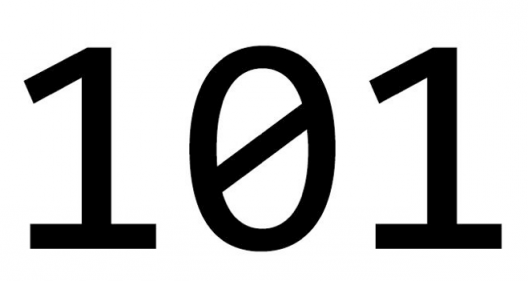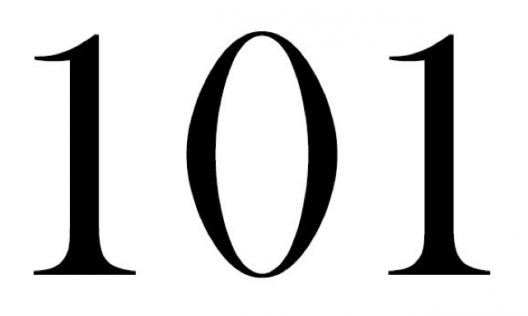
This article is co-authored by Sherin Wing
1] Even if your boss is your friend he may have to axe you to save his business.
2] Read the book, On Bullshit, by Harry G. Frankfurt. Carry it with you. It’s pocket-sized.
3] Do not drink at work and especially do not get toasted around your colleagues under any circumstances.
4] No matter how highly you may think of yourself you may still be a minion in the eyes of others who hold more power than you.
5] Once you leave architecture school not everybody cares about architecture or wants to talk about it.
6] All eating habits and diets acquired during school should be jettisoned.
7] The hygiene habits you kept in architecture school are inappropriate for real life; bathe regularly and change your underwear.
8] The rush and exhilaration you experience in studio may be inversely proportional to how much you will enjoy working for a firm.
9] It’s architecture, not medicine. You can take a break and no one will die.
10] Significant others are more important than architecture; they are the ones who will pull you through in the end. See 49.
Keep reading after the break.
11] Being smart and having advanced degrees can make you a better designer.
12] The industry underpays. Push for what you are worth.
13] Mind your internet traffic at work unless you are certain your office does not have someone monitoring. Of course you should be working every minute, so this goes without saying.
14] Go home to your family.
15] Call your loved one’s frequently.
16] If you are working overtime, the firm buys dinner.*
*Contingent on office policies, of course.
17] Don’t keep a mayline screwed to your desk. They are not cool and they date you. The same goes for colored pencils.
18] Get the biggest monitor you can.
19] Do not, however, ask for two monitors. Even though it makes you look like a bad-ass you will be expected to do twice the amount of work.
20] Make sure team roles are clearly defined.
21] Know what your role is.
22] Be careful with emails. If in doubt, don’t send.
23] At times respect and civility seem to be scarce commodities in architecture.
24] Be cautious of “opportunities†that do not pay.
25] Sometimes the most critical person on your jury might actually be right.

26] Understand how your office is run as a business and how they go after projects.
27] It is best to keep your outside activities quiet.
28] Your boss reads your blog.
29] Pyromania, car soccer, and other antics you made up to amuse yourself at 3 am are not actually normal. See 49.
30] There are no architectural emergencies that should make you completely give up your life on the outside. That may have been the ethos in studio, but don’t carry it into the office.
31] Be suspicious if your firm expects you to work long hours of overtime for no compensation. Be doubly suspicious if they justify it by saying things like, “It’s just part of the learning curve†or “We had to go through this, too.â€
32] If a police officer pulls you over on the freeway for doing 90 mph on a Sunday morning while heading into the office, it’s time to re-evaluate your priorities.
33] Know who the decision-makers are.
34] Don’t dress like an intern. See 72.
35] Read Dana Cuff’s Architecture: The Story of Practice.
36] Expect to be regarded with suspicion if your undergraduate degree is not in architecture.
37] Don’t be seduced by mere appearances.
38] If your firm is outsourcing work to save money, be concerned.
39] Architecture firms can have multiple glass ceilings. Be aware of them all.
40] If a principal of a firm sees making coffee or moving boxes as beneath him/her, consider looking for another office.
41] If a principal doesn’t say good morning when you say good morning to him/her, consider looking for another office.
42] When firms advertise themselves as think tanks or research labs, ask them specifically what it is that they do. And most importantly, make sure they pay. Well.
43] If you are invited to be on a jury, don’t trash the student just to make yourself look good or to contradict a rival on the jury. Be constructive and try to help the student. This is the point.
44] Subvert the signature of the software, unless you consciously want the architecture to convey this signature.
45] Architects are in a service industry. They provide services to clients.
46] In proportion to their pay, architects require the most education, most training, and the most exams to become licensed professionals.
47] Don’t be a Typhoid Mary. When sick, stay home.
48] Embrace the business-side of architecture.
49] If you are an architect you should automatically qualify for psychotherapy and medication.
50] Most architects believe they were destined to become architects because of their early childhood experiences. They showed signs of architectural greatness at a very young age. This is a myth that reinforces an unhealthy hero complex. See 49.

51] Architecture in the academy is completely removed from the profession. Likewise, the values within the academy are radically different from the values within a firm.
52] Be cautious about applying theory to space.
53] Do not take design strategies or operations learned in studio too seriously.
54] Know the difference between architectural celebrity and actual worth.
55] Read books with words, not just pictures.
56] All firms are different. Shop.
57] To save time, assume your wife is right.
58] Do not date an architect unless you are certain he/she is able to maintain a healthy life outside of architecture. See 49.
59] Architects should not intermarry. Inbreeding is not good for the gene pool. See 49.
60] If you are married when you go to architecture school, studio ends at 7:00.
61] Do not buy into the fashion of the moment and simply dismiss certain architects without examining them for yourself.
62] Architects who do not build things also have important things to say and should be listened to.
63] If your studio instructor is a recent graduate, be alarmed.
64] Do not obsess about sustainability to the exclusion of other factors.
65] Renderings done in China are so last year.
66] If you start a think tank make sure you have some thoughts to put in it.
67] Read Rem Koolhaas, but do not obsess and fantasize about being him. Delirious New York is still relevant.
68] Archi-babble does not make you sound cool.
69] Keep in touch with everyone you know, especially if they aren’t in architecture.
70] In fact, make friends who are not architects.
71] Do not wear the same shoes every day, They will start to smell.
72] Make sure your jeans are up-to-date. No acid-wash. No baggy.
73] The economically distressed urban zones you can afford while in school are not gentrified just because you and your friends have moved in.
74] If you must read Italo Calvino, read more than just Invisible Cities.
75] Expect a period of post-traumatic stress disorder after you graduate. Do not make any important decisions during this time.

76] Don’t get a dog just because you are lonely.
77] Architecture is fueled by fetishes—rectilinear designer eyewear, for instance.
78] When trying to decide if a theory book is good, check the bibliography first.
79] Listen to your elders. They are wise.
80] FAIA can mean different things to different people.
81] If you already have a B.Arch, consider further education in a different field. Your M.Arch. can’t make a real contribution to the field if you’re just showing off software skills.
82] Always back up your hard drive.
83] Embrace social media, but don’t be its bitch. Only tweet/post when you have something important to say.
84] Architecture firms should consider forming economic alliances similar to OPEC.
85] Even if you don’t like the look of someone’s architecture they may have something valuable to teach you.
86] Great architecture, like great art, tends to arise from deep psychological issues. See 49.
87] The eighties and postmodernism were not all bad.
88] Being avant-garde is a choice that should be evaluated.
89] Architect’s web pages are often out of control and take too long to load.
90] In one’s life there are a finite number of all-nighters one can pull. You probably used them all up in school.
91] Understand the contexts from which modernism arose.
92] When the economy is good architects can rely on experience to run firms, but when the economy is bad they need advanced business skills they may not possess.
93] Architecture is dependent on boom and bust cycles.
94] Good design is not necessarily the most important factor in running a successful architecture firm.
95] Branding is important.
96] In a corporate firm, those at the top are not necessarily the best but they may have been there the longest.
97] Being good at software does not make you a good architect.
98] Architecture is cliquish.
99] Many architects do not live in houses designed by themselves or other architects.
100] Architecture office parking lots communicate success. There should be at least a couple high-end luxury cars. If there are a lot of beaters, be wary. If all cars are beaters, don’t go in.
101] Be concerned when you are too idle at work.
The Indicator, a weekly column focusing on the culture, business and economics of architecture, is written by Guy Horton. The opinions expressed in The Indicator are Guy Horton’s alone and do not represent those of ArchDaily and it’s affiliates. Based in Los Angeles, he is a frequent contributor to Architectural Record, The Architect’s Newspaper and other publications. He also writes on architecture for The Huffington Post. Follow Guy on Twitter.











